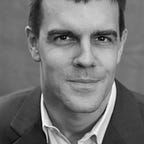A Time-Management Tool That Fights Pandemic Brain Fog
Start planning how to close the ‘open loops’ on your to-do list
Of all the self-help books I’ve ever read, the one that’s stuck with me the most — and the one that feels the most newly urgent in this strange time we live in — is David Allen’s Getting Things Done. It’s a book that’s useful for thinking about work and creativity and the paradoxical relationship between organization and imagination. It also has a lot to say about the peculiar sense of stasis or paralysis that many of us currently find ourselves gripped by.
The most important concept in Allen’s book is what he calls the “open loop”: something you intend to do, or know you have to do, but that you have not gotten around to actually doing, or even making a plan for doing. Open loops are draining, Allen argues, because even if you’re not consciously paying attention to them, your unconscious mind is. All the cognitive energy it’s devoting to fretting about those unfinished household tasks, half-written stories, and unanswered emails is sapping your ability to think about the stuff that you really want to be thinking about. As he puts it, “uncompleted tasks take up room in the mind, which limits clarity and focus.”
Allen’s open-loop concept echoes the so-called Zeigarnik effect, a phenomenon documented by the Lithuanian psychologist Bluma Zeigarnik, whose research showed that unfinished tasks tend to stick in our memory more than finished ones do. In principle, this could be a good thing: It’s a way for our unconscious to motivate us to finish things. But if you have lots and lots of unfinished tasks, the nagging doesn’t motivate. Instead, it creates a permanent state of low-level stress and anxiety.
And for many of us, the pandemic has created a whole new set of open loops — loops that are really, really big, and not easily closable.
